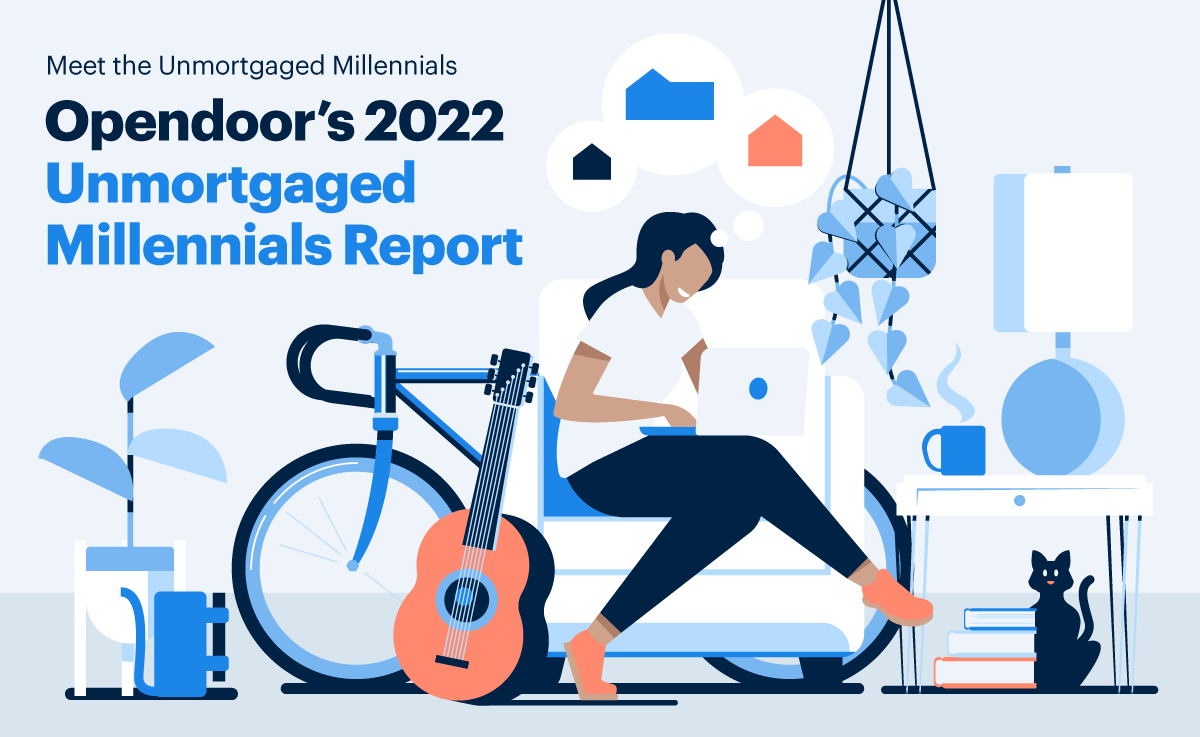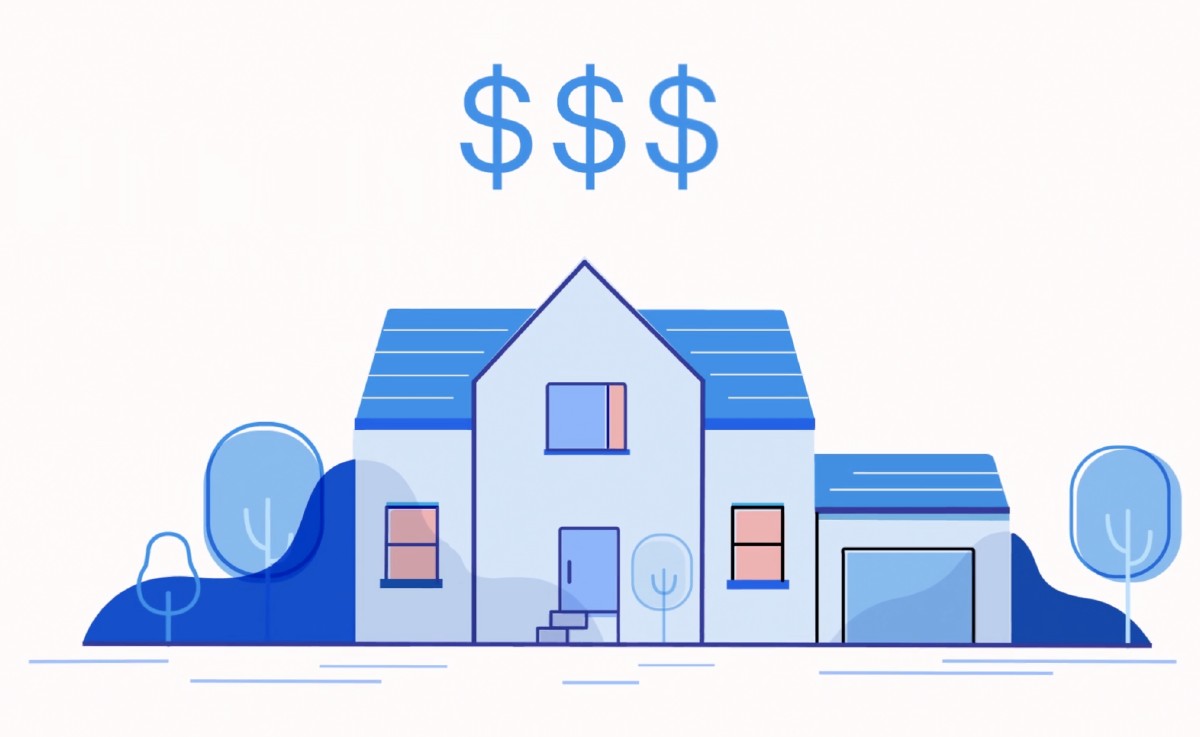The spread of COVID-19 has caused an unprecedented response, creating a lot of uncertainty in the housing and financial markets. Opendoor has bought and sold tens of thousands of homes nationwide, so we tapped our internal experts to respond to some of the most common questions we’re receiving.
While we don’t provide financial advice, our approach to managing uncertainty is to take a long-term view, focus on the things we can control, and avoid making decisions out of panic. Above all else, health and safety are most important—the best thing for our collective well-being, and the housing market, is to prevent the spread of the virus.
Here’s what we’ll cover:
- What is the impact on the housing market?
- Will home prices crash?
- How long will the recovery take?
- I need to move. What are my options?
How is COVID-19 impacting the housing market?
Throughout March, the U.S. housing market has seen fewer homes listed for sale, more delistings, and a slowdown in demand as state and local governments continue to issue orders related to containment and social distancing.

Gross clearance rate is the ratio of total contracts signed relative to the number of days active listings are on the market. It’s a useful signal of the demand for buying homes.
We anticipate home buying and selling activity to continue to slow as a lot of people delay their decision to move either for health concerns, uncertainty with employment and income, or because of logistical challenges in completing a transaction.
For example, thousands of the country’s recording offices, which maintain public records involved in a home purchase, have shut down or cut hours. Many people are also struggling to tour homes following guidance from local shelter-in-place measures.
Interest rates have remained low, but that hasn’t come without challenges. We are seeing increased volatility with the average 30-year, fixed rate mortgage declining sharply to 3.29% in early March before climbing to 3.65% weeks later (Freddie Mac). Low rates are creating a lot of demand for lender services at a time when many businesses and government offices are closing. This is extending closing timelines and potentially freezing transactions for some.
For those who are able to buy a home, low rates increase purchasing power and allow a lower monthly payment throughout the duration of the loan.
 Will the housing market crash?
Will the housing market crash?
Home prices are the result of supply and demand. How the COVID-19 pandemic impacts those trends depends on how long and how severely broader trends in commerce, employment, and investment are disrupted.
Since we anticipate a steep drop in home sales, we expect many sellers who choose to stay on the market to lower prices and/or offer incentives to motivate buyers. However, this doesn’t necessarily mean home prices will crash.
During past economic shocks, research shows that prices in other sectors of the economy tend to be more resilient than the number of transactions. If supply (the number of homes for sale) decreases at the same rate as demand (the number of people buying homes), then prices should remain stable.
We don’t expect supply and demand to move perfectly in unison, but COVID-19’s broad impact across the economy suggests that it’s impacting housing supply and housing demand in roughly equal measures, which could mean less volatility in prices.

For example, during the 2003 SARS outbreak, transactions fell 33% in China, according to Midland Realty Data. But growth rates in home prices fell by only 1-2%, according to Bank of International Settlement Statistics, with a total recovery time of 6 months. In other words, the decline in home sales was severe, yet temporary, while home prices fell only a few percentage points before rebounding.
Still, while we can look to past economic shocks for some idea of how this will play out, the response to COVID-19 is in many ways unprecedented. For example, it’s easy to flashback to the 2008 subprime mortgage crisis. However, the risky lending practices and over-building of homes leading up to the crash in 2008 differ widely from a global pandemic that is preventing home transactions from occurring.
You can read more about how the supply and demand trends of 2020 differ from 2008 in our guide to the housing market.
How long will it take for the economy to recover?
This is an incredibly difficult question to answer, and the truth is, no one can say for certain.
Theoretical simulations of pandemics, many of them described in this Congressional Budget Office (2006) report, suggest a fall in GDP between 1-5% and a 1-3% rise in unemployment over 3 quarters. Following the shock, the report estimates that the economy could return to its long-run growth and unemployment rate after 3-6 quarters.
We cannot say whether the current COVID-19 pandemic will follow what researchers have modeled. What we can control is our response to the outbreak.
This is why the Federal Reserve has lowered the federal funds rate to zero. This is a strong, preventative measure that helps ensure banks have enough money supply to continue lending to businesses and consumers. It is intended to prevent large spikes in unemployment and business collapse during a time of economic uncertainty. Congress has also passed a $2 trillion dollar stimulus bill, aimed at supporting the many workers and businesses affected by the pandemic.

On an individual level, the best thing we can do is follow state and local shelter-in-place orders, as well as guidance from the CDC, and do our best to contain the virus. The fact that we don’t know how long the COVID-19 response will last is even more reason to take social distancing seriously because we are all in this together.
I need to move. What are my options?
One of the key challenges for those who need to move now is how to navigate the aspects of a transaction that require human interaction like showing homes, touring homes, meeting with agents and third-parties, etc.
Many real estate companies are adapting their policies to provide options for buyers and sellers during this period of uncertainty. It’s important to note that these options are changing on a near-daily basis as public health guidelines change across more states and municipalities.
Buying a home
Traditional home showings are largely no longer available, however, in some areas, buyers can schedule a private in-person tour (in keeping with social distancing requirements) or request video conferencing for a fully virtual touring experience.
Where we’re able to do so safely and in compliance with public health guidance, we’re making special accommodations for agents to conduct tours of Opendoor homes directly with clients. Please note that what we’re able to do today may change tomorrow as the public response to COVID-19 continues to evolve. You can stay updated on our COVID-19 resources page.
Financing a home
With rates near historical lows, we know a lot of people are exploring financing options. As we discussed above, this is also driving a “refinancing boom,” straining lender capacity at a time when many offices are closing. We recommend working with your lender early, even before your offer is accepted. A good place to start is getting pre-qualified.
Selling a home
Avenues for homeowners who need to sell also exist. Opendoor has temporarily paused buying homes directly, and instead, we’re directing sellers to alternative options that can provide workable solutions given the challenges of transacting in the marketplace.
Reach out to contact@opendoor.com if you have any questions and sign up for updates here to be notified when we’re ready to resume purchasing homes.
We know the pressure to move can be overwhelming and you can’t always control what life throws at you. First and foremost, we encourage everyone to stay safe and make their health the highest priority.





